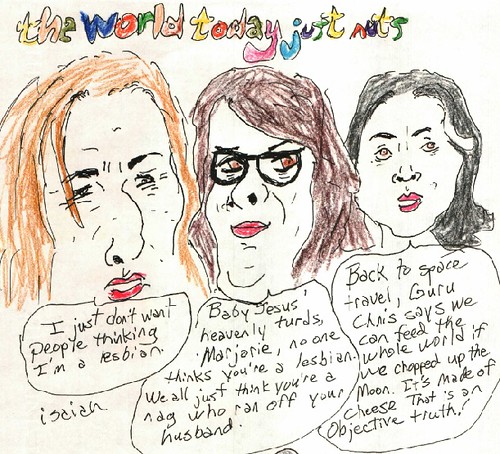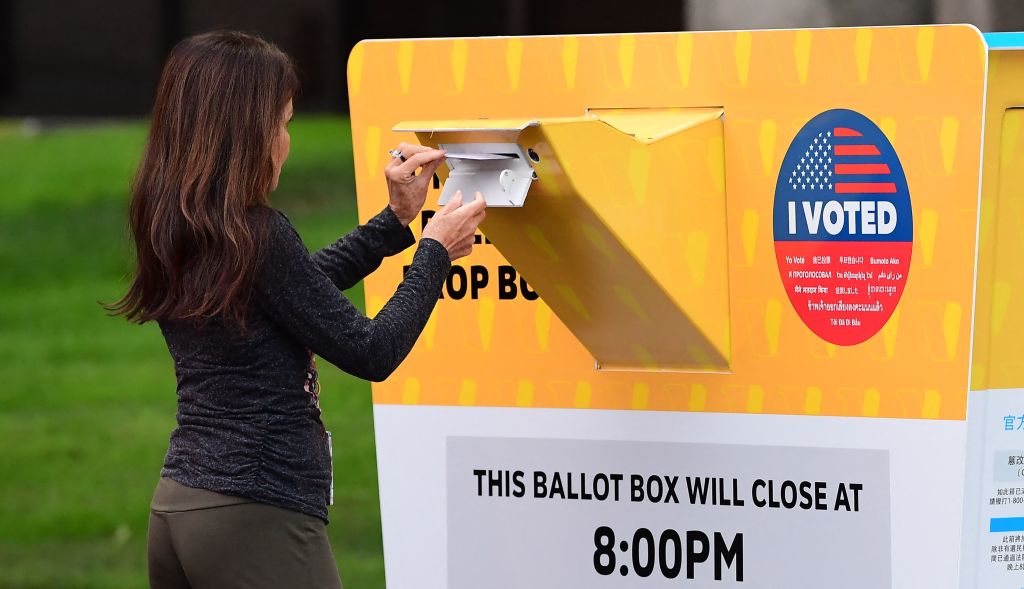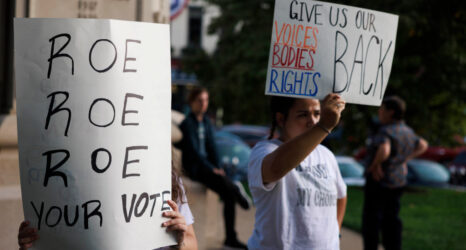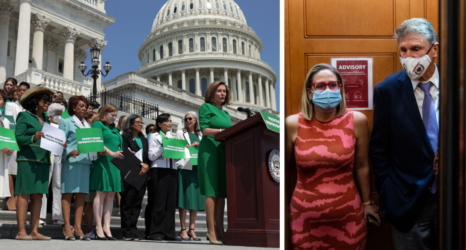Isaiah's THE WORLD TODAY JUST NUTS "Take A Moment To Enjoy The PEW" went up Saturday and "Enjoy THE PEW" went up Sunday.
Will Lehman is running for president of United Auto workers and here's a statement from his campaign:
On Sunday, October 23, at 2:00 p.m. EDT, I am hosting an emergency online public meeting to discuss a strategy to defend jobs. Register here.
Brothers and sisters,
I am writing to you today to make everyone aware: A new phase in the restructuring of the global auto industry has begun, and our jobs and livelihoods are once again under threat.
The companies have already fired their opening shots in this battle. Last week, Stellantis announced that it was eliminating the third shift at the Chrysler Warren Truck Assembly Plant in suburban Detroit. Both Stellantis executives and UAW officials arrogantly lectured workers at Warren Truck about quality issues and absenteeism and threatened to close the plant, while ignoring the fact that they are paying poverty wages in sweatshop conditions and keeping all the profits workers have generated for themselves.
The UAW has claimed that “no one is being laid off,” but the company has stated that as many 1,215 jobs will be impacted, and hundreds of “supplemental employees” may see their hours cut to the bone.
Beyond Warren Truck, the Ford Romeo Engine Plant north of Detroit is scheduled to close next month, the result of the UAW’s 2019 sellout agreement, which top union officers like Rory Gamble falsely claimed was a “strong” and “life-changing contract.” In fact, it was “strong” for the company and “life-changing” for the workers it devastated.
At the Stellantis Belvidere Jeep Plant in Illinois, workers have been subjected to round after round of job cuts, with thousands of layoffs and the elimination of two shifts since 2019. The workers who remain, many of whom are older, are being run like dogs, forced to take on work that multiple people used to perform.
Even larger job cuts are being prepared. The business press has called into question the future of Ford Chicago Assembly, Belvidere and other plants which have yet to be assigned an electric vehicle product.
For a national strike to fight corporate terrorism
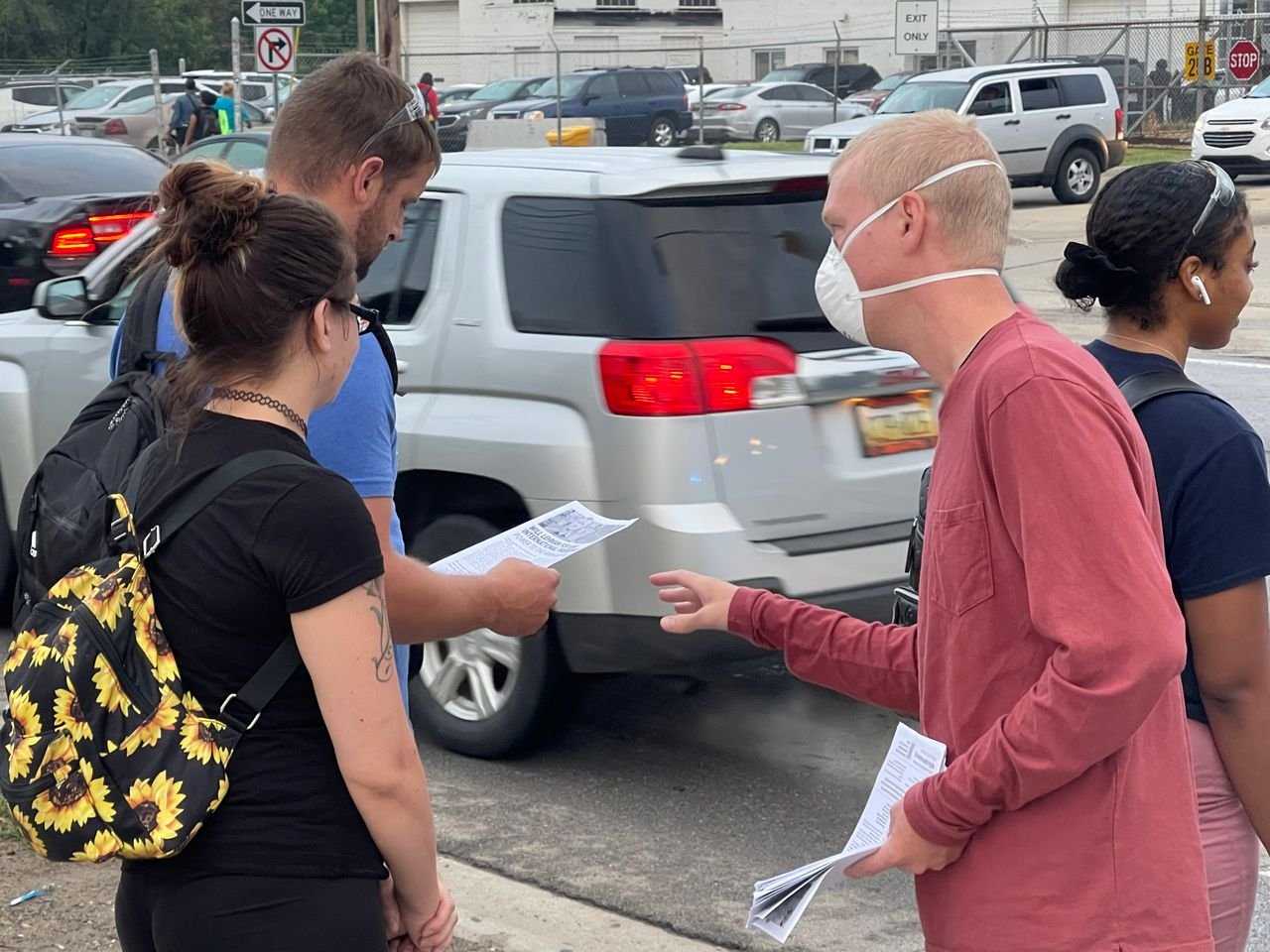
Talking with workers at Warren Truck Assembly earlier this year
This corporate terrorism must not be allowed to take place! I call for the full mobilization of all rank-and-file workers in the UAW to halt any further layoffs or concessions. It is time to draw a line in the sand: The rights of workers must take precedence over private profit!
The traditional slogan of the workers’ movement must be revived: An injury to one is an injury to all! If I become UAW International president and the companies are threatening mass layoffs and plant closures, then I would call out all workers in the UAW in a national strike, with full strike pay, to fight against such attacks. There is no doubt the pro-corporate, corrupt UAW bureaucracy would attempt to sabotage and resist such a policy. That is why I am calling for the abolition of the UAW bureaucracy and the transfer of power to workers on the shop floor through the formation of rank-and-file committees.
The struggle against job cuts must go hand in hand with the fight to improve our working conditions and living standards. If the companies say that less labor is needed, then the rational policy would be to reduce the workweek from 40 to 30 hours with no loss in pay. Of course, the reality is that many of us are forced to labor 50, 60, 70 or even more hours to make ends meet. But this means that wages must be massively increased and COLA reinstated, so that no worker has to kill themselves in order to pay their bills and put food on the table for their families.
Autoworkers have already suffered endless cycles of temporary layoffs from parts shortages and chaos in the supply chains or gone on unpaid leave because of COVID-19, things which we have no control over, wreaking havoc on our incomes. The situation facing “temporary” and “supplemental” workers is especially difficult. My campaign has met many TPTs, TFTs and SEs who cannot afford to live on their own, are paid $16 an hour or less, and who pay dues to the UAW but are told they have no rights and no recourse against being terminated.
The program of the working class must be based on the fight for what we need, including our right to a good-paying, safe and secure job, along with time with our families.
A ruling class policy of mass unemployment and wage cutting
The job cuts in the auto industry are part of a conscious policy of the ruling class to counteract the just demands by workers everywhere for far higher wages and decent working conditions. The Federal Reserve, with the support of both big business parties, is rapidly raising interest rates, seeking to slow down the economy, drive up unemployment and reduce our ability to win wage increases. Wall Street investment houses are already forecasting a slump in the auto industry in the next six months, with rising auto loan rates playing a significant role.
While the representatives of the banks and corporations complain of “wage inflation,” the auto companies have made tens of billions in profits since the pandemic began and have received massive bailouts and tax write-offs from the state.
Ford, GM and Stellantis alone have taken in over $65 billion in profits since the start of 2020. This wealth, created from our labor, is being funneled to the banks and big investors through dividends and stock buybacks.
The corporations and Wall Street are using the transition to electric vehicles and new technologies to destroy jobs, cut labor costs and massively increase the exploitation of the workers who remain.
They claim that there is no money for decent wages and full benefits for all workers, but what they really mean is that they don’t want to give up any of their profits.
The collaboration of the UAW apparatus
Every contract, the UAW executives tell us that we must accept concessions in order “save jobs.” But this has proven to be a false and dead-end strategy. We’ve seen one gain after another stripped away—pensions, COLA, the eight-hour day, fully-paid health care—and had hundreds of thousands of jobs destroyed since the early 1980s.
The UAW bureaucrats at “Solidarity House” never speak about the human cost of their policies. Families are split up or forced to uproot and move hundreds of miles away to keep their jobs, only to face new threats of unemployment. For those workers who are cast aside, there are divorces, home foreclosures, drug and alcohol addiction, depression and suicide.
The impact on entire working class towns and communities has been catastrophic. Places like Flint, Michigan; Lordstown, Ohio; Janesville, Wisconsin; the Quad Cities and countless others have been ravaged by deindustrialization, offering working class youth little in the way of a future.
But even as the UAW apparatus has overseen the loss of more than one million active members since 1980, its assets have stayed relatively stable. The bureaucracy has squeezed more and more dues out of us, while shifting more of its investments to the stock market, a blatant conflict of interest.
In 1980, when Chrysler was on the verge of bankruptcy and worked with the UAW to enforce the first-ever concessions, then-UAW Vice President Marc Stepp made a revealing admission, saying, “I believe that the company will have to trim operations down. But what can you do about it? We have free enterprise in this country. The corporations have a right to make a profit.”
This remains the anti-worker, pro-capitalist standpoint of the entire UAW apparatus: Nothing can be done to fight layoffs because the corporations have a “right to make a profit,” while workers supposedly have no rights.
Workers must declare: Enough is enough!
It is high time for workers to fight back. This is what my campaign is about: organizing the rank and file to transfer power to the shop floor, abolishing the UAW apparatus that blocks us from fighting and launching a real campaign to defend our interests.
I want to conclude with two points:
The only way we can successfully defend jobs and secure our needs is with an international strategy. We live in a world economy, and the attacks on jobs are taking place internationally. Over the summer I spoke with Ford workers in India and Germany who were facing the closure of their plants. In Europe, Ford has tested out a strategy of pitting workers in a race to the bottom, demanding plants in Spain and Germany compete to see who would give up the most cost cuts in return for the promise of EV investment, which the union bureaucracies there went along with. That is why my campaign is in solidarity with the International Workers’ Alliance of Rank-and-File Committees (IWA-RFC). Our enemies are not the workers in Mexico, China, Japan or other countries, as the nationalist UAW officials would have us believe. Nothing terrifies the ruling class more than the possibility of a coordinated and unified movement of workers internationally.
The growing economic crisis must not be placed on the backs of workers, as it was done in 2008, which produced the tier system and a gigantic, historical decline in workers’ living standards.
If the corporate oligarchy refuses to provide workers with a livable income and safe and secure jobs, then it has forfeited its right to privately run the companies. This means that the corporations should be placed under public ownership, democratically controlled and run by workers in factory and workplace committees, operated to meet the needs of workers, not the private profit interests of a handful of billionaires.
Brothers and sisters, we must take a stand to prevent another jobs massacre. If you agree with my perspective, I urge you pledge to vote for me, and contact my campaign to discuss joining the growing network of rank-and-file committees.
Sincerely,
Will Lehman
Register to attend the emergency public Zoom meeting on Sunday, October 23, at 2:00 pm EDT to discuss a strategy to defend jobs:
And here's a Tweet from his campaign.
Former Freightliner Trucks worker told my campaign team about working mandatory Saturdays in the hazardous "sandbox" where there are "injuries all the time."
— Will Lehman | WillforUAWpresident.org (@WillforUAWpres) October 17, 2022
What happened to the 40-hr week? "They were behind on trucks, that's what they always told us." And the UAW allowed it! pic.twitter.com/Dhf22XraQH
And here's a video of Will.
This is C.I.'s "Iraq snapshot" for Thursday:
The Iraqi artist, Basem Mahdi, wrote two square kilometer ‘save the marshes’ sentence in an attempt to shed light on the drought hitting the marshlands in southern Iraq.
Mahdi wrote the two square kilometer sentence in the marshlands of Al-Chibayish District in Dhi Qar governorate in southern Iraq.
The Al-Chibayish marshes is one of the most famous marshes in Iraq which suffers from a great drought due to the lack of water flow.
Ninety-one percent of Iraq’s water originates in Turkey, Iran and Syria, leaving the country at the mercy of those controlling the taps upstream. Accompanied by a translator and fixer, I set out, travelling northwards from the very south, across the country, to explore the impact of these combined forces on those most directly affected – and what that might forebode.
Poisonous snakes emerge from fields and slither into homes in Iraq, threatening people and claiming lives. In neighbouring Iran, crocodiles previously known for their “blissful” nature are attacking the same people with whom they have peacefully existed for as long as anyone can remember.
Almost 120,000 people were sickened and admitted to hospital by contaminated water in Basra, Iraq. Large protests over water and electricity claimed 23 lives. Water protests roiled Iraq’s Kurdistan in August 2021.
[. . .]Iraq is one of the world’s most water-stressed countries, ranked fifth in vulnerability to water and food availability and extreme temperatures in the UN Environment Programmes 2019 Global Environmental Outlook report.
Temperatures have risen by at least 0.7℃ over the past century; extreme heat events are occurring more frequently. The World Bank estimates temperatures will rise 2℃ by 2050 while the average annual rainfall will decrease by 9%.
President Barham Salih, in a recent piece in the Financial Times, noted that desertification affects 39% of Iraq and “increased salinisation threatens agriculture on 54% of our land”.
Unicef reported in August 2021 that 60% of children in Iraq lack access to clean water, while half of schools have no water at all. With Iraq’s population of 40 million expected to double by 2050, demographic growth will exponentially worsen the situation.
Meanwhile, dams in neighbouring Turkey and Iran choke Iraq’s famed rivers, the Tigris and Euphrates, in the heart of what was once known as the Fertile Crescent.
It was the river that is said to have watered the biblical Garden of Eden and helped give birth to civilization itself.
But today the Tigris is dying.
Human activity and climate change have choked its once-mighty flow through Iraq, where — with its twin river the Euphrates — it made Mesopotamia a cradle of civilization thousands of years ago.
Iraq may be oil-rich but the country is plagued by poverty after decades of war and by droughts and desertification.
Battered by one natural disaster after another, it is one of the five countries most exposed to climate change, according to the U.N.
Pollution caused by oil production in Iraq is the leading cause of increased rates of cancer in parts of the country; its environment minister has acknowledged.
Minister Jassem al-Falahi has acknowledged that pollution from oil production is the main reason for increases in local cancer rates.
After a BBC Arab research on oil pollution in the vicinity of Basra, which has resulted in an upsurge in leukemia cases in areas closest to the region's oil resources, Jassem Al-Falahi revealed the statement.
The information was disclosed despite Prime Minister Mustafa Al-order Kadhimi's prohibiting public workers in Iraq from discussing health issues associated with the oil sector.
Al-Falahi claimed that the Ministry of Oil prohibited personnel from the Ministry of the Environment from keeping track of pollution levels at the Rumaila oil field, the biggest in the nation and the location of the majority of waste gas flare-ups.
His remarks followed a BBC Arabic research that found populations around oil sites near Basra have a higher risk of leukemia than the general population.
Gas flaring, the wasteful burning of gas created during oil drilling, is suspected to be to blame in these towns. Pollutants like benzene linked to cancer are produced during flare-ups.
Monday, The United Nations world food Program and the Food and Agriculture Ogranization of the UN issued the following statement:
17 October 2022 - The world is at risk of yet another year of record hunger as the global food crisis continues to drive yet more people into worsening levels of acute food insecurity, the Food and Agriculture Organization of the United Nations (FAO) and the United Nations World Food Programme (WFP) warn. On World Food Day (16 October), the two agencies call for urgent action to address the root causes of today’s crisis as the world continues to face challenges without borders, including Iraq.
Iraq, known commonly as the “Land of Two Rivers” has been experiencing increased drought for the past two years, brought about by the rising temperatures, reduced rainfall which is the lowest in 40 years in addition to reduced water flows in Tigris and the Euphrates rivers. This led to degradation of arable land, increased water, and soil salinity, which all contribute to serious loss of livelihoods and an increased pressure on the state national budget, which imports cereals to ensure enough food, is available to the population.
“Iraq remains one of the most affected countries globally by the adverse effects of climate change. Unless mitigation and adaptation are implemented, the future may not be promising for the small holder farmers and vulnerable groups in Iraq,” said WFP Iraq Representative, Mr. Ally Raza Qureshi. “We at WFP believe that food is the path towards peace and as such, serious action must be taken immediately by the Government of Iraq and the International community to adopt climate smart food systems and long-term resilience building in order to ensure that Iraq and its people are able to navigate these testing times.”
“This year slogan for the World Food Day Leave no one behind. Better production, better nutrition, a better environment, and a better life, underlines the need for concerted action to ensure that everyone has access to adequate, healthy, and affordable food while maximizing environmental sustainability in particular in Iraq where climate change is disproportionally affecting the rural poor, their agricultural yields and productivity” said FAO Representative in Iraq, Dr Salah ElHajjHassan. “Each of us has a role to play in transforming food systems for the benefit of people and the planet; FAO is committed to empower the most vulnerable in Iraq, including women and youth, through the transformation to more efficient, inclusive, sustainable, and resilient agrifood systems. We need to act in global solidarity to ensure that no one is left behind and become climate advocates by wasting less, eating nutritious food, in particular seasonal and locally produced foods and caring for natural resources like soil and water”.
In 2021, Iraq developed a plan to increase the efficiency, inclusiveness, resilience, and inclusivity of its agri-food systems as part of the Food Systems Summit. This was done to ensure that everyone everywhere has access to enough affordable, safe, and nutritious food to lead active and healthy lives.
Twenty percent of the Iraq’s workforce are engaged in the agricultural sector, which is the second largest contributor to the country’s gross domestic product (GDP) after the oil sector, accounting for 5 percent of the total GDP. Thus, agriculture development is critical to allow Iraq to achieve their vision of a more diversified economy, in addition to generating employment and boosting private sector engagement. In this regard, urgent work must be undertaken on the levels of investing in research and development in an effort to make farming more technologically advanced and capable of handling adverse climate conditions and financially viable in the country, in addition to Agri-business and value chain development to increase profit margins and encourage farmers not to abandon their lands, which is not merely a detriment to their incomes, but also drives up local food costs and shortages, affecting entire communities. It is also paramount to discuss the issue of food waste, which decreases the availability of food intended for human consumption. This has consequences for the environment, natural resources, and the overall economy.
FAO and WFP together with the Government, private sector, academia, civil society will continue working together to prioritize food security, to increase local food production and to strengthen the resilience of the most vulnerable households. Immediate joint action is key to ensuring sustainable food and nutrition security while leaving no one behind.
Dr. Salah ElHajjHassan, FAO Representative, Iraq
Ally Raza Qureshi, WFP Representative, Iraq
For decades, Iraq has had to contend with all manner of challenges, sometimes catastrophes, that would hurt even the most resilient countries. The past 20 years have been particularly troubling.
The country is fast becoming one of the most environmentally stressed nations on the planet due to climate change but also to government negligence and incompetence. The results have ranged from failed harvests to cholera outbreaks, as desperation to access dwindling water supplies forces people to tap into contaminated wells.
The economy of one of the Arab world’s richest countries is crippled, devastating particularly for its disproportionately young population who, out of a lack of opportunity, are pushed into dangerous trips overseas. Iraqis constitute one of the biggest groups who migrate to Western Europe illegally.
This and other failures have fuelled political anger and driven many to the streets, even, as was recently the case, into the most important halls of power. Only last August protesters stormed the country's parliament.
The sources told Asharq Al-Awsat that Romanowski has emphasized during her meeting with Al-Sudani the necessity to form a government that “contributes to restoring security and political stability in the country,” noting that it was essential to “benefit from the experience of previous governments, because failure this time will have serious repercussions on Iraq.”
Iraqi leaders tried to reassure the US ambassador in Baghdad that the new government would maintain its strategic relations with Washington, as reported by an official in Al-Fateh Alliance.
Al-Sudani also told the German ambassador to Iraq, Martin Jaeger, that his prospective government would seek to “build balanced relations with its regional and international surroundings.”
|
|
|
|
|
|
|
|
|
|
|
|

